|
Silence is an old friend—one I don’t often get to spend quality time with. But when I do, we give each other a knowing glance, a subtle nod, a familiar smile. It doesn’t matter how many days, weeks, or months have passed—we can pick up right where we left off without any sheepishness. Today, I come in through the front door, take off my coat, and settle into the warm embrace of silence, letting it melt any frost that has accumulated in my heart. Silence knows I’m not able to visit as often these days, but she doesn’t hold a grudge or look at me disapprovingly. She gives me a tender look and welcomes me with open arms – relishing every moment I give her to rejuvenate my soul. And she can work very quickly—a few minutes, hours, (in this case) a day. Any time spent in her company is restorative. She is generous with herself. I was reminded of that this past weekend when I attended a Silent Day of Reflection at the Catholic Apostolate Center’s headquarters at Green Hill. This little oasis sits on 14 acres just a few miles outside of the hustle and bustle of Washington, D.C. and offers ample spaces, both indoor and outdoor, for prayer and reflection. The theme of the day was The Beatitudes. The schedule was sprinkled with powerful moments of prayer: Mass, Adoration, Confession, a reflection on the day’s theme, and Lectio Divina. There was also time for quiet personal prayer. Participants had the opportunity to walk the grounds, enjoy the gardens, pray in the chapel, journal, color, or simply rest. The home of the Pallottine Fathers and Brothers of the Immaculate Conception Province is a treasure, offering a welcome place of retreat, gathering, and prayer. The Pallottines, as well as the staff of the Catholic Apostolate Center, are pleased to invite and welcome those seeking formation, personal enrichment, rejuvenation, or spiritual refreshment to Green Hill and look forward to continuing to provide opportunities to do so. As a wife, mother, blog editor, homeowner, and budding gardener, I find my days often blur in the hasty movement of time. I frequently long for silence and reflection, but do not have the time or space for it. The Silent Day of Reflection organized by the Catholic Apostolate Center was an answer to a prayer and a gift for my spiritual life. After spending the day at Green Hill, I got up from silence’s hearth reluctantly, feeling gently lulled, peaceful, held. It was a refreshing day of encounter with God amidst the beautiful backdrop of nature, and I didn’t want it to end. Not all have the wisdom to seek silence, to receive the gifts she awaits to impart. We often take her for granted, drown her out, or try to replace her—convincing ourselves she is old-fashioned, irrelevant, unnecessary, extinct. She awaits all the same, ever ancient, ever new—the immortal gift of her Creator, the vehicle of His encounter, the respite of all souls. Will you seek her? To learn more about Green Hill and upcoming events, please click here.
0 Comments
5/9/2018 Everyday Holiness (Part 2): 10 Quotes from Pope Francis' Apostolic Exhortation to Help You Be Holy in Today's WorldRead NowOn April 9, the Solemnity of the Annunciation of the Lord, Pope Francis released his latest Apostolic Exhortation: Gaudete et Exsultate (Rejoice and Be Glad): On the Call to Holiness in Today’s World. This is the third Apostolic Exhortation of his papacy, following Evangelii Gaudium, the Apostolic Exhortation on the Proclamation of the Gospel in Today’s World and Amoris Laetitia, a post-synodal Apostolic Exhortation on Love in the Family. What was his goal? “To re-propose the call to holiness in a practical way for our own time, with all its risks, challenges and opportunities" (GE 2). Without delving too much into a theological or heady definition of holiness, Pope Francis invites us simply and straightforwardly to open ourselves to the specific and unique mission God has created us for. In this, he says, lies true joy and freedom. Our Holy Father takes us back to the Source of Holiness, Jesus Christ, and encourages us to look to the Beatitudes as guides for holiness. Below, I’ve compiled some of my favorite quotes and key take-aways from this approachable, yet profound, exhortation. 1.“A person’s perfection is measured not by the information or knowledge they possess, but by the depth of their charity.”-GE 37 It is tempting to leave the task of holiness to theologians, the clergy, or those who work for the institutional Church. Here, Pope Francis reminds us that holiness is not all about intellectual knowledge, our ability to quote the latest Church document, or the Catechism. While knowledge of the Faith certainly is important, our holiness is measured by the amount of love with which we infuse all of our actions. I can’t help but think of St. John of the Cross’s quote: “In the twilight of life, God will not judge us on our earthly possessions and human successes, but on how well we have loved. 2. “Jesus explained with great simplicity what it means to be holy when he gave us the Beatitudes (cf. Mt 5:3-12; Lk 6:20-23). The Beatitudes are like a Christian’s identity card…In the Beatitudes, we find a portrait of the Master, which we are called to reflect in our daily lives.” -GE 63 I love that Pope Francis ultimately leads us to Scripture and to Jesus Christ Himself as the model and teacher of holiness. It can get overwhelming trying to be holy and define holiness in our modern world. The Beatitudes, Pope Francis says, are like a “Christian’s identity card.” They point us directly to holiness and guide us along the way. Spending time reflecting on each of the Beatitudes will help us to better understand what it means and looks like to be holy. 3. “It is true that the primacy belongs to our relationship with God, but we cannot forget that the ultimate criterion on which our lives will be judged is what we have done for others. Prayer is most precious, for it nourishes a daily commitment to love. Our worship becomes pleasing to God when we devote ourselves to living generously, and allow God’s gift, granted in prayer, to be shown in our concern for our brothers and sisters.” –GE 104 Here, Pope Francis is reminding us that our prayer must lead to action. We cannot be holy in a vacuum, but are called to live out holiness amidst our brothers and sisters. Service to the world, as promoted by Catholic Social Teaching, is crucial if we are to be true followers of Christ. While our relationship with God always comes first, this relationship turns our gaze outward in order to foster and build relationships of love, service, and communion with our brothers and sisters. 4.“Far from being timid, morose, acerbic or melancholy, or putting on a dreary face, the saints are joyful and full of good humour. Though completely realistic, they radiate a positive and hopeful spirit.” -GE 122 Holiness leads to joy – this is the true fruit of our living a holy life. As Christians, we are called to exude the joy of the Resurrection and of the Gospel in the midst of a world plagued by sin, brokenness, and suffering. While holiness is joyful, is does not exist in an alternate reality, but embraces the truth of the world in which we live. Pope Francis says that this holiness is “realistic” and allows us to engage the world while still looking beyond it to the glory of eternal life. 5. “God is eternal newness. He impels us constantly to set out anew, to pass beyond what is familiar, to the fringes and beyond. He takes us to where humanity is most wounded... God is not afraid! He is fearless! He is always greater than our plans and schemes. Unafraid of the fringes, he himself became a fringe (cf. Phil 2:6-8; Jn 1:14). So if we dare to go to the fringes, we will find him there; indeed, he is already there.” –GE 135 The theme of going outside our comfort zone has been one Pope Francis has promoted since the beginning of his papacy. He calls us as Christians and as the Church to wake up, open our doors, and shake the dust off ourselves by imitating God who is “eternal newness.” Holiness, therefore, means being active, bold, and unafraid. It means meeting Christ in the fringes of society and finding him outside the confines of our Church walls. 6.“Let us allow the Lord to rouse us from our torpor, to free us from our inertia. Let us rethink our usual way of doing things; let us open our eyes and ears, and above all our hearts, so as not to be complacent about things as they are, but unsettled by the living and effective word of the risen Lord.” –GE 137 Here, Pope Francis continues to invite the Church to an examination of conscience. Are we doing things out of habit, because we’ve always done something a certain way, or are we open to the promptings and workings of the Holy Spirit as we approach our task of holiness and evangelization? The example and word of Jesus Christ should always “unsettle” us to some degree. We do not achieve perfect holiness at some point in our life and then rest on our haunches! The journey lasts throughout our lifetime. 7.“Are there moments when you place yourself quietly in the Lord’s presence, when you calmly spend time with him, when you bask in his gaze? Do you let his fire inflame your heart? Unless you let him warm you more and more with his love and tenderness, you will not catch fire. How will you then be able to set the hearts of others on fire by your words and witness? If, gazing on the face of Christ, you feel unable to let yourself be healed and transformed, then enter into the Lord’s heart, into his wounds, for that is the abode of divine mercy.” -GE 151 I love this passage from Gaudete et Exsultate. Pope Francis takes on a more reflective tone here and invites us to be prayerful along our journey to holiness. He gets to the heart of holiness by asking us some profound but unavoidable questions. Essentially, he’s asking if we have truly encountered Jesus Christ and his infinite love. This is fundamental to holiness, for our encounter with Christ’s love is what will carry us forward on our journey and sustain us. Take some time to pray with these questions and ask the Lord for a deeper encounter with his love. 8.“For this spiritual combat, we can count on the powerful weapons that the Lord has given us: faith-filled prayer, meditation on the word of God, the celebration of Mass, Eucharistic adoration, sacramental Reconciliation, works of charity, community life, missionary outreach. If we become careless, the false promises of evil will easily seduce us.” –GE 162 As with any journey, we will encounter setbacks and temptations as we strive for holiness. Pope Francis devotes a section of his exhortation to the reality of evil and our need to acknowledge it. Pursuing holiness also means engaging in spiritual combat. We not only face our own weaknesses or the sins of others, we also face an actual opponent: the devil. Here, Pope Francis encourages us to count on “the powerful weapons that the Lord has given us.” We are not alone as we face evil, but find our strength in the Church, the sacraments, our brothers and sisters, etc. 9. "Discernment is necessary not only at extraordinary times, when we need to resolve grave problems and make crucial decisions. It is a means of spiritual combat for helping us to follow the Lord more faithfully. We need it at all times, to help us recognize God’s timetable, lest we fail to heed the promptings of his grace and disregard his invitation to grow." –GE 169 Discernment is a way of life. It means inviting the Lord into our actions and decisions and asking for his guidance as we go about our day. Pope Francis reminds us that discernment is not reserved only for major life decisions such as a move, our vocation, a job opportunity, etc. Discernment should be engrained into our spiritual life and helps to ensure that we are living our lives according to God’s plan rather than our own. 10.“Mary is the saint among the saints, blessed above all others. She teaches us the way of holiness and she walks ever at our side. She does not let us remain fallen and at times she takes us into her arms without judging us. Our converse with her consoles, frees and sanctifies us.” -GE 176 We cannot pursue holiness without looking to the perfect model of human holiness: the Blessed Virgin Mary. Pope Francis concludes his exhortation by inviting us not only to look to Mary, but to go to her and build a relationship with her. She always guides us closer to her Son. Mary is a gift to us given by Christ himself to journey alongside us on the path to heaven, don’t forget to use her as a resource! **This is part two of a two-part series of quotes from Pope Francis’ latest Apostolic Exhortation: Gaudete et Exsultate. For more information and resources on Gaudete et Exsultate, please click here. Questions for Reflection: How does Pope Francis challenge your idea of holiness? Do you agree with the Holy Father’s definition? Where do you see holiness being lived out today? 5/1/2018 Everyday Holiness: Ten Quotes from Pope Francis’ Apostolic Exhortation to Help You Be Holy in Today’s WorldRead NowOn April 9, the Solemnity of the Annunciation of the Lord, Pope Francis released his latest Apostolic Exhortation: Gaudete et Exsultate (Rejoice and Be Glad): On the Call to Holiness in Today’s World. This is the third Apostolic Exhortation of his papacy, following Evangelii Gaudium, the Apostolic Exhortation on the Proclamation of the Gospel in Today’s World and Amoris Laetitia, a post-synodal Apostolic Exhortation on Love in the Family. What was his goal? “To re-propose the call to holiness in a practical way for our own time, with all its risks, challenges and opportunities" (GE 2). Without delving too much into a theological or heady definition of holiness, Pope Francis invites us simply and straightforwardly to open ourselves to the specific and unique mission God has created us for. In this, he says, lies true joy and freedom. Our Holy Father takes us back to the Source of Holiness, Jesus Christ, and encourages us to look to the Beatitudes as guides for holiness. Below, I’ve compiled some of my favorite quotes and key take-aways from this approachable, yet profound, exhortation. 1.“The Lord asks everything of us, and in return he offers us true life, the happiness for which we were created. He wants us to be saints and not to settle for a bland and mediocre existence.” -GE 1 Pope Francis echoes his predecessors in reminding us that following Christ leads to an abundant, joyful, and exciting life. We often do not equate holiness to greatness, but that’s what it is. Though God expects a lot from us, he gives us so much more: true life and happiness. Our Holy Father is reminding us that holiness makes us truly happy by calling us to live abundantly. 2. Holiness is the most attractive face of the Church. -GE 9 Many of us might have grown up thinking that holiness is boring and that sanctity is impossible, so why is Pope Francis saying that holiness is the most attractive face of the Church? What does this mean? When we embrace holiness, we become who we were created to be; we become our most authentic selves. This authenticity, this freedom, is attractive. It makes the Church come alive through each of her members. When we are striving for holiness, we are becoming our best and most loving selves. This witness is what evangelizes – it invites others to pursue their own journey of holiness. 3.The important thing is that each believer discern his or her own path, that they bring out the very best of themselves, the most personal gifts that God has placed in their hearts (cf. 1 Cor 12:7), rather than hopelessly trying to imitate something not meant for them. We are all called to be witnesses, but there are many actual ways of bearing witness. -GE 11 Oftentimes, it’s easy to compare ourselves with others. It’s tempting to see the gifts and talents of others and ask ourselves why we do not have the same. The Body of Christ is made up of all different parts – each necessary for the functioning, health, and well-being of the body itself. Here, Pope Francis reminds us that there are as many paths to holiness as there are people. Each of us was designed specifically by God for a unique purpose. We do not have to become St. Francis, St. Vincent Pallotti, St. Mother Teresa, St. Joan of Arc, or St. Francis de Sales. We become saints by becoming most fully and authentically who God made us to be: ourselves. 4.To be holy does not require being a bishop, a priest or a religious. We are frequently tempted to think that holiness is only for those who can withdraw from ordinary affairs to spend much time in prayer. That is not the case. We are all called to be holy by living our lives with love and by bearing witness in everything we do, wherever we find ourselves. – GE 14 In this passage, Pope Francis reminds us of the universal call to holiness which has its inception in the Gospel and which the Church has explicitly reminded us since the closing of the Second Vatican Council. Holiness is not reserved for those with theology degrees, the ordained, monks, or religious. It is not reserved for those who work for the Church or volunteer with acts of service. It is for each and every one of us: the high school student studying for exams, the single parent, the politician developing laws for his or her constituents, the factory worker, the refugee far from home, the married couple starting or raising a family, the list goes on and on. Whatever vocation, profession, or place in life we find ourselves in, let us infuse it with love in order to become holier each and every day. 5.In the Church, holy yet made up of sinners, you will find everything you need to grow towards holiness. The Lord has bestowed on the Church the gifts of scripture, the sacraments, holy places, living communities, the witness of the saints and a multifaceted beauty that proceeds from God’s love, “like a bride bedecked with jewels” (Is 61:10). -GE 7 Sometimes the journey of holiness seems impossible. We can get tired and beaten down by our own weaknesses and failures, and by the multitude of temptations and trials that seem to present themselves at every step. Here, Pope Francis is reminding us that Jesus Christ gives us everything we need to be holy. Our growth in holiness cannot exist apart from Christ’s Church. Though the Church is not perfect, it is in the Body of Christ that we have access to Scripture, the sacraments, and community, so that we can have the help of others who are also striving for holiness. Do not forget to use these invaluable resources, to go back often and drink from the well of life, in order to get the strength you need to continue your journey of holiness. 6. This holiness to which the Lord calls you will grow through small gestures. -GE 16 This quote reminds me of the often-referred to statement of St. Mother Teresa: “…do small things with great love.” Holiness does not happen overnight. It involves millions of decisions and actions – each one leading us closer to or further away from our goal. Pope Francis reminds us that we are called to grow in holiness in a way that may seem small and ordinary. Cleaning a dish can become an act of holiness—so can changing a diaper, writing a paper, tending a garden, submitting a work report, or sitting in traffic. Greatness, then, lies in the little things. This is the little way St. Therese of Lisieux shared with the Church. It can lead to great sanctity. 7.Each saint is a mission, planned by the Father to reflect and embody, at a specific moment in history, a certain aspect of the Gospel…Every saint is a message which the Holy Spirit takes from the riches of Jesus Christ and gives to his people. -GE 19, 21 Each of us are a product of our times. We were born at a specific time and place in order to live out a specific mission. We don’t often think ourselves as “a mission,” as Pope Francis says, or as “a message,” but these are beautiful ways to think about our lives and the weight and dignity of each one. By thinking about our lives in this way, we see that each of us is planned by the Father at this exact moment in time and that our lives, actions, and interactions with others are invaluable. If we do not share the message God created us to impart, no one else will. 8.Just as you cannot understand Christ apart from the kingdom he came to bring, so too your personal mission is inseparable from the building of that kingdom…Your identification with Christ and his will involves a commitment to build with him that kingdom of love, justice and universal peace. -GE 25 After Christ’s Resurrection and before his Ascension into heaven, he gave his disciples a clear command: “Go, therefore, and make disciples of all nations, baptizing them in the name of the Father, and of the Son, and of the holy Spirit.” The same commission resounds for us today. Jesus came not only to overcome sin and death, but to build his kingdom on earth. For this reason, Pope Francis reminds us that we “cannot understand Christ apart from [his] kingdom.” Before joining Christ in Heaven, we’ve got work to do. We join Christ in his mission by working to create a world of “love, justice and universal peace.” Holiness, therefore, is not for us alone, but for society, for others, and for the world. 9.The presence of constantly new gadgets, the excitement of travel and an endless array of consumer goods at times leave no room for God’s voice to be heard…Sooner or later, we have to face our true selves and let the Lord enter. -GE 29 The world today is an incredibly noisy place. Our access to technology enables us to be plugged in at almost every moment of the day. We see screens on our computers, smartphones, and televisions; we are bombarded by advertisements; we spend hours on social media. Without demonizing technology or refuting its benefits, Pope Francis reminds us of the temptation to drown out the voice of God with noise. If we are unable to hear the voice of God, then we will be unable to attain the holiness to which we are called. How can we carve out more time for God today in silence and in prayer? 10.Do not be afraid of holiness. It will take away none of your energy, vitality or joy. On the contrary, you will become what the Father had in mind when he created you, and you will be faithful to your deepest self. To depend on God sets us free from every form of enslavement and leads us to recognize our great dignity. -GE 32 Our world often views holiness as boring, enslaving, or downright impossible. Here, Pope Francis beautifully reminds us that holiness leads to true authenticity and freedom. Rather than limit our lives or diminish them with rules, regulations, and boredom, holiness leads to joy and vitality. Embracing who we were made to be leads to true happiness and satisfaction, rather than chasing the empty things of this world or trying to be who we are not. Let us not fear holiness, but strive for it wholeheartedly! **This is part one of a two-part series of quotes from Pope Francis’ latest Apostolic Exhortation: Gaudete et Exsultate. For more information and resources on Gaudete et Exsultate, please click here. Questions for Reflection: Do these quotes from the Holy Father surprise or excite you? How has your perspective of holiness changed after reading some of these words from Pope Francis? When I was at a recent Bible study with friends, we prayed about and discussed the passage from Matthew 14:22-33 – the story of Jesus calling Peter out of the boat to walk to him on water. As Peter sees the wind and waves around him, his trust in Jesus begins to falter and he starts to sink. When he cries out for help, Jesus immediately catches Peter, saying, “Oh you of little faith, why did you doubt?” In many ways, we, too, are like Peter: cautiously trusting the Lord, but when tested in the chaos, we learn our trust isn’t as strong as it should be. This is where we can look to St. Bartholomew for guidance. St. Bartholomew (also known as Nathanael), whose feast day is August 24th, was one of the 12 Apostles mentioned in the Synoptic Gospels. While little is known of St. Bartholomew, we see his true personality in John 1:43-51. The apostle Philip was a friend of Bartholomew, an Israelite. As Philip tells Bartholomew that he, Andrew, and Peter found the Son of God, St. Bartholomew responds, “Can anything good come from Nazareth?” Later, Jesus says of him, “Here is a true Israelite. There is no duplicity in him.” Jesus also says he saw Bartholomew under a fig tree before Philip called him, leading us to understand Bartholomew was in prayer with the Lord. St. Bartholomew immediately answers, “Rabbi, you are the Son of God; you are the King of Israel.” This passage reveals St. Bartholomew’s blunt honesty. He is open about his doubts of any good coming from Nazareth, but does not hesitate in his belief when Jesus reveals himself. This is why Jesus calls St. Bartholomew an Israelite with no deceit. Through St. Bartholomew, we see qualities that Jesus praises: honesty, truth seeking, sincerity and thoughtfulness. These good attributes allow Jesus to come into St. Bartholomew’s life and build trust with him. Likewise, St. Bartholomew is able to open up to new perspectives and ruminations on spiritual matters. In Matthew 5:8, we learn from the Beatitudes, “Blessed are the clean of heart, for they will see God.” St. Bartholomew is a model to us of this purity of heart. When we seek truth, we can more clearly see God and respond to his call. Living apart from the truth dims our relationship with God and our ability to hear his call. Dishonesty makes life more difficult for us to know the truth, which is built on trust. The Catechism of the Catholic faith says that “placing our trust in Christ’s promises and relying not on our own strength, but on the help of the grace of the Holy Spirit” enables us to become heirs in hope of eternal life. Ultimately, God is truth itself. We learn from St. Bartholomew’s example that we can come to know God better in reflection through prayer. To know God through prayer is to know truth and therefore trust. This open line of communication with God unlocks our minds to explore different perspectives and gives us the ability and willingness to overcome critiques, which is necessary for evangelization. Even in the above passage from Matthew 14:22-33, where Peter walks out onto the water, we learn at the very beginning of the story that Jesus found time to pray and reflect in solitude with his Father before meeting with the Apostles in the boat. St. Bartholomew’s prayer led him to truth. He trusted in God and then shared that truth with others in order to convert them to Christianity. After Jesus’ ascension, St. Bartholomew traveled farther than most of the other Apostles. He visited Syria, Ethiopia, India, and Armenia, preaching the Gospel and God’s word. It is believed St. Bartholomew was martyred in Armenia. May we learn to trust God through St. Bartholomew’s example! As we remember Rev. Martin Luther King Jr. on this American federal holiday, I invite you to join me in reflecting on his dream for the United States and for the world. Rev. King fought for equality and justice in the United States using nonviolence. He helped empower American society to look past differences and come together through love by leading people in prayer and using words paired with non-violent actions. As a Baptist minister, Rev. King upheld Christian ideals and spoke to the hearts of all those facing injustice. He personally felt and lived through discrimination and had his share of fear and uncertainty. Yet through these hardships, he led others to see truth in justice and civil rights by organizing non-violent marches and protests, and by preaching unity.
Much of what Rev. King said through his words and his non-violent actions can be compared to the teachings of Christ. In the Gospel of John, for example, Peter tries to defend Jesus from a large crowd trying to arrest him in the Garden of Gethsemane. Jesus tells Peter to “put the sword in its sheath” and in Matthew’s Gospel adds, “all those who take up the sword shall perish by the sword.” In doing so, Christ tells Peter that fighting back with the same means as the enemy will get him nowhere. Earlier in Matthew’s Gospel, while he was preaching about the Beatitudes in the Sermon on the Mount, Jesus reminded his disciples, “You have heard that it was said, ‘Love your neighbor and hate your enemy.’ But I tell you, love your enemies and pray for those who persecute you, that you may be children of your Father in heaven” (Matthew 5:43-45). Christ preached forgiveness through love and mercy throughout his ministry and demonstrated this in a powerful way throughout his arrest and Passion. Jesus demonstrated how love can change hearts and save lives. Martin Luther King Jr. imitated this response. His promotion of unity has had powerful repercussions on our society that are still felt to this day. Unfortunately, discrimination in various forms continues. Our next generation sees pain, division, and fear in the news and TV shows, on social media, and even sometimes right outside their doors. However, those who cultivate empathy for others can make Rev. Martin Luther King Jr.’s dream come true today and breathe life into Christ's teachings in the Gospel. So how can you empower the nation with love? How can you teach through your actions how to live out Christian values and Catholic Social Teaching? In what ways can you help bring understanding and empathy to others? I invite you to reflect on the Beatitudes from Jesus’ Sermon on the Mount (Mt. 5:3-10) as a way to embark on this journey toward building peace! “Now when Jesus saw the crowds, he went up on a mountainside and sat down. His disciples came to him, and he began to teach them. He said: 'Blessed are the poor in spirit, for theirs is the kingdom of heaven. Blessed are those who mourn, for they will be comforted. Blessed are the meek, for they will inherit the earth. Blessed are those who hunger and thirst for righteousness, for they will be filled. Blessed are the merciful, for they will be shown mercy. Blessed are the pure in heart, for they will see God. Blessed are the peacemakers, for they will be called children of God. Blessed are those who are persecuted because of righteousness, for theirs is the kingdom of heaven. Blessed are you when people insult you, persecute you and falsely say all kinds of evil against you because of me. Rejoice and be glad, because great is your reward in heaven, for in the same way they persecuted the prophets who were before you.” Please visit our website to learn more about Cultural Diversity, Catholic Social Teaching and Christian Unity. There’s a fear that’s crippling our call to discipleship today: The fear of failure. Let me just say, this is hard as Americans. We love success. We’re taught from a young age to dream it, pursue it, seize it. We value success stories; we want to have a greater impact, to change the world, to maximize results. If we can achieve this in our faith and ministry, even better, right? Well, maybe. This might be the message written into the American narrative, but it’s not necessarily the Gospel. Our assumptions start sounding odd alongside the Beatitudes Jesus gave his followers, and his promise to the disciples foretelling persecution and rejection (Mt 10:16-23). Moreover, St. Paul claimed to be “content with weaknesses, insults, hardships, persecutions, and constraints, for the sake of Christ” (2 Cor 12:10), and even instructed the Thessalonians, “to aspire to live a tranquil life, to mind your own affairs, and to work with your own hands” (1 Thess 4:11). St. Paul’s suggestions are not exactly the keynote themes we have come to expect at most high-energy church conferences these days. Not surprisingly, we are simultaneously inclined to relish the failure of others. As much as we love the success of a celebrity, we equally revel when the mighty fall. When this happens to church leaders, we assume they are fakes, phonies, or just not very gifted. What doesn’t easily capture our imagination is the struggle that happens in between — the daily living and dying to self that occupies the majority of time and energy in pastoral ministry. Resolving petty conflicts, preparing talks for kids who probably don’t care, assisting the odd homeless woman who keeps knocking at the door — if only we could eliminate these distractions and move on to the real work of the Gospel! Meanwhile, we eat up sensationalized stories of success and failure in an escape from what is real, and ultimately, redemptive. Success and failure actually have less to do with the size or location of a church than what values and expectations shape the content of our discipleship. When we inadvertently conflate American pragmatic principles for Gospel virtues, we risk making disciples who measure their faithfulness by a standard of fruitfulness foreign to the Gospel, thus creating a ministry model unhealthy for our souls and our churches. Failure is not fun or romantic. It’s not something to rejoice, or even proof of our faithfulness. But it prepares the ground for fruitfulness. Fruitful soil is rich with dead and decaying stuff — our failures — that ultimately make us ready to plant the seed of the Kingdom of God. Recovering a “theology of failure,” as Pope Francis and others have spoken of, may be an important step for renewing our Catholic imaginations and acquiring the heart of Jesus. In order to “ready this soil” there are a couple of things we can do to change the way we think about and approach our daily ministries. Ministry is a Process, not a Product When we measure a ministry’s effectiveness, we often desire quantifiable results steadily increasing along a straight line on a graph. There’s definitely a place for this kind of analysis in running a church or ministry. But doing God’s work often follows a slow progression passing through unanticipated hills and valleys. We look at a person’s life and say, “Here’s where Jenny lost her job and had to cut back time and money at church, but here’s where her small group members provided babysitting and cooked meals.” The Church and her members rise and fall by the logic of the death and resurrection of Jesus, not by the laws of the stock market. Seek Balance, not Efficiency When we elevate efficiency above balance, disciple making resembles an assembly line that aims to produce predictable outcomes in the shortest amount of time. One corrective measure we can take is to remember to keep holy the Sabbath. Is our ministry bringing us peace of soul, or are we burned out and burdened with too much stuff at church? It’s possible we need to pursue more effective systems or strategies, but maybe what we really need is to recover rest in God’s redeeming love. Share Stories of Redemption In the gospels, the opposite of failure isn’t success, but redemption. Pay more attention to stories of redemption than stories of outward success. I love the story of Blessed Charles de Foucauld, a 20th century monk and martyr who lived amongst the Tuareg people of the Sahara Desert, sharing in their daily joys and struggles while representing the love of Jesus. His story and spirituality inspired others, but only years after his death (see his Prayer of Abandonment). As part of our task for the New Evangelization, I suggest we revisit what we call success and failure and begin pursuing ends not so focused on winning in a religious market, but embodying the example set by our savior, Jesus Christ. In some way, I think we come closest to understanding our ministry in light of Christ’s death and resurrection, i.e., when we are in the valleys our world labels “failure.” In these valleys, we throw ourselves upon the power of the Resurrection, knowing we cannot rise again on our own.  This upcoming summer, the Church will be celebrating World Youth Day in Kraków. The Church invites all of us, not just those pilgrims in Poland, to celebrate and participate in this great event. The Catholic Apostolate Center announced a few weeks ago that it will be partnering with the USCCB and the Archdiocese of Washington in a number of World Youth Day celebrations both here and abroad, including the event “Kraków in the Capital,” which celebrates World Youth Day stateside in Washington, D.C. As I was helping prepare for the celebration, I came across the fact that the body of Bl. Pier Giorgio Frassati will be present for the World Youth Day celebrations in Kraków. I knew very little about this extraordinary young man and I decided that I needed to learn about him. I feel like my introduction to him was perfect timing. Much like Pier Giorgio, I have a great love for the outdoors and for sports. I will gladly spend hours watching games and discussing Sidney Crosby and my Pittsburgh Penguins, the New York Giants, and why the 1969 Mets were the greatest World Series team. Some of my fondest memories include hiking in the Scottish Highlands, climbing mountains in the Adirondacks, and backpacking in New Mexico. I've always regarded these as great activities, but found it challenging to incorporate them into my spiritual life. I knew that being in nature connected me closer to God, but did not know how that could affect my spiritual journey. This young man showed me how. Pier Giorgio Frassati was born to a prominent family in Torino, Italy on April 6, 1901. His father was the founder of the La Stampa national newspaper (which is still in print today) and was very active in national politics as a member of left wing parties. Growing up, Pier Giorgio took an active role in his life of faith and developed a deep spiritual life. He could often be found praying before the Blessed Sacrament and reflecting on the Beatitudes. During World War I, he served the sick and helped servicemen reintegrate back into society. Like his father, Pier Giorgio got involved with politics but joined the People's Party, which was based on Rerum Novarum and Catholic Social Teaching. He would often be found climbing mountains, going to the theater and to the opera, but never let these pastimes interrupt his service to the poor and the outcast. He would be seen giving bread and sometimes his own clothing to the beggars in the streets. While still a young man, Pier Giorgio was photographed climbing a mountain. He signed the photograph 'Verso L'Alto', which means 'Go to the Heights'. This would serve as his personal motto and means more than simply mountain climbing. It is also a figure speech referring to the climb towards Christ. Pier Giorgio felt that he was drawn to the heights of the Beatitudes and to the Blessed Sacrament. He encouraged all those around him to also climb to these heights of the spiritual life. Pier Giorgio's family disapproved of his activities and of his faith. They could not understand Pier Giorgio's passion for the poor and for the spiritual life. As he grew older, he grew deeper in his devotion and eventually joined the Third Order of Saint Dominic (Lay Dominicans) in 1922. Before graduating from university, Pier Giorgio contracted a very aggressive form of polio and grew extremely ill. It was during this short period that his grandmother passed away, drawing ire from his family because they felt that Pier Giorgio did not show enough grief for her death due to his own illness. On the night before Pier Giorgio himself passed away, he requested that his medication be given to a poor man he had been visiting. Pier Giorgio succumbed to his illness on July 24, 1925. His family expected very few people to come to his funeral, only some family and personal friends. When the family departed for the funeral, they were completely stunned to find the streets completely lined with thousands of people whom he had cared for. Simultaneously, the people lining the streets were shocked to find that he was from such a prominent family. Pier Giorgio's legacy continued not only in Torino, but also throughout the world. While visiting Torino in 1989, Saint John Paul II made a pilgrimage to his tomb. A year later, on May 20th, Pier Giorgio Frassati was beatified in Saint Peter Square. His body was then moved from the family plot and reinterred in the Cathedral of Torino for pilgrims to visit. St. John Paul II said, "He (Frassati) testifies that holiness is possible for everyone". In researching his life, I have found encouragement from this great man. He shows us how to have zeal not only for life, but also for our faith. He gives us courage and inspiration. As I prepare for the World Youth Day celebrations, I look forward to diving deeper into the life and spirituality of Pier Giorgio. Blessed Pier Giorgio Frassati, pray for us! The parable of Lazarus and the Rich Man in Luke’s Gospel is a passage referenced often for its moral lessons: how to treat the poor, how to avoid the dominance wealth can have on an individual. Readers take one look at the characters and find the lessons that can be applied in their own lives. However, a recent reading of John Chrysostom’s sermons On Wealth and Poverty has encouraged me to take a longer look at this parable. Chrysostom argues that we can learn from the parable not only about the characters in it, but also about the God who saves them.
We find Lazarus in a state of great poverty. Jesus tells us in Luke’s Gospel that Lazarus “would gladly have eaten his fill of the scraps that fell from the rich man’s table. Dogs even used to come lick his sores (Lk 16-21).” The details in this account show us that Lazarus was not just any poor person, he was the poorest. He could not afford anything for himself. He was so weak that he could not even fight small animals away. What does this say about the rich man? What kind of person must he be to pass by Lazarus without being moved to pity him? He must have passed him multiple times since Lazarus was right outside the rich man’s home. This paints a picture of a man who is not only consumed by his wealth, but is also blinded by it. Given these two characters and the details told of them, what can be determined about God? Earlier in the Gospel of Luke, Christ gives the famous Beatitudes, speaking about those who are “Blessed,” which can also mean “happy.” He says that in God’s eyes, those who are poor, hungry and weeping are the ones who are blessed and will be eternally happy.(Lk 6: 20-22) Lazarus embodies these characteristics to the extreme. And through Lazarus we see a reversal in heaven of what is on the earth. That is to say, that through Christ, those who are poor are wealthy in God. In contrast, the rich man in the story, consumed by his desire for earthly wealth and status, finds himself in the netherworld after death.(Lk 16:23)He is the epitome of those Christ warned against in the second half of the Beatitudes. His “woe to you” lines speak out to all of the characteristics that the rich man had: money, fame and laughter. But this is not limited to a criticism of success or money, but rather reflects on how the rich man used his wealth. He did not share even the least of his possessions with Lazarus. Because of the character of God, He ends up sharing nothing of Heaven with the rich man. It echoes Jesus’ words, “What you did to the least of my brothers, you did to me.”(Mt 25:40) We see Lazarus in Heaven sitting with Abraham. The hopefulness to spend eternal life with Abraham, the father of the Israelites, is what makes the poor rich. This hope given to us directly from God is reflected within Lazarus himself. God took the poorest of the poor, and elevated him to standing side-by-side with Abraham. This alludes to the mercy that God has on us, culminating with the death of Christ Himself. In this death, we see a complete reversal: the son of God accepts the poverty, humiliation, and human death that we all must experience at some point. But Christ also shows us what awaits us in Heaven: endless mercy and love. Lazarus’s poverty, hunger, and rejection from society become his greatest strength. For what kind of person does it take to endure such ridicule? Our God is a God who notices such characteristics that go beyond that scope of the world. In this parable, we see more than just a poor cripple and a pitiless man. We see a God who is completely merciful, reversing the earthly situation Lazarus found himself in. The parable represents an eschatological reversal stated clearly in the Beatitudes: The poor are blessed and the rich are warned. Most importantly, we have a God whose mercy extends to both sides if they choose to accept it. Thomas Coast works in the Diocese of Manchester NH and working on is MA in Theology through the Echo Faith Formation Program out of the University of Notre Dame. |
Details
Archives
July 2024
Categories
All
|
About |
Media |
© COPYRIGHT 2024 | ALL RIGHTS RESERVED



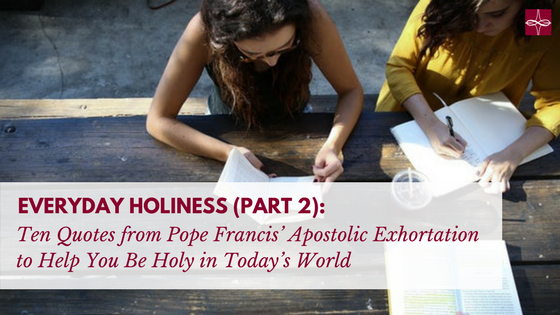

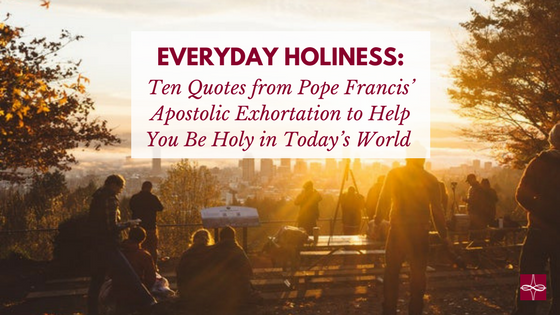

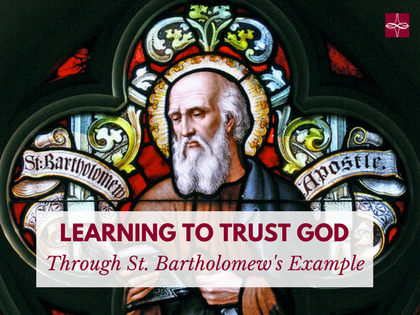

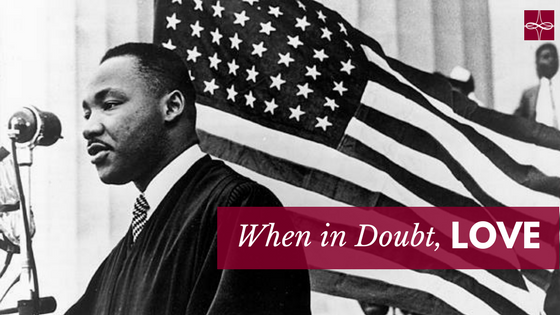

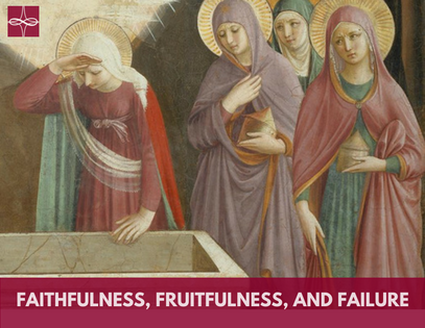

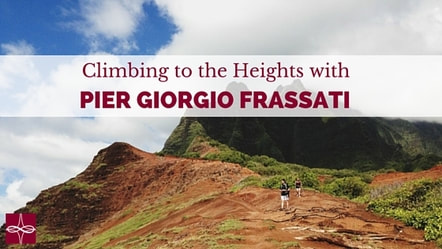

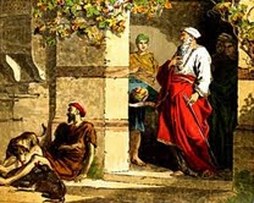
 RSS Feed
RSS Feed